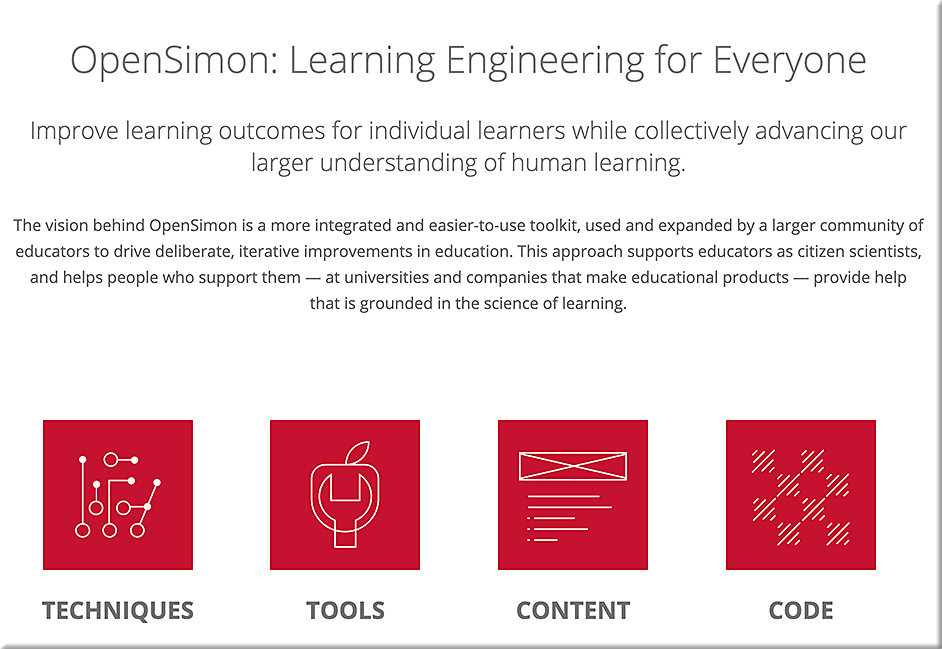With flip of a giant ceremonial switch, CMU starts effort to energize ‘learning engineering’ — from edsurge.com by Jeff Young
Excerpt:
Pittsburgh, PA—For a moment this week, the provost of Carnegie Mellon University looked a bit like a game show host as he grabbed the lever of an oversized switch and called on an audience to join him in a countdown—“5, 4, 3, 2, 1.” Then, he toggled the cardboard lever and declared open a new website, one that gave away software that took more than $100 million in grant funding to develop.
It was an unusually theatrical moment for a gathering to announce the release of software tools to help professors improve their teaching. But the organizers were playfully acknowledging the size of their project’s ambition—which they hope will spark a more data-driven and experimental approach to teaching at colleges around the country. And the flair was fitting, since success will end up being based not so much on how well the software works, but on how well its creators can attract momentum to their cause—and change the culture of the academic profession to make teaching an area professors are excited to make discoveries around.
…
Plenty of others have tried in the past to bring the principles of engineering to college teaching, though with limited success. In fact, the effort at Carnegie Mellon is named for Herbert Simon, a longtime professor at Carnegie Mellon who won a Nobel Prize in economics and devoted his energy and academic capital to trying to spread his ideas about turning teaching from a solo sport to a team effort. But it didn’t catch on widely in his lifetime.
From DSC:
…and devoted his energy and academic capital to trying to spread his ideas about turning teaching from a solo sport to a team effort. But it didn’t catch on widely in his lifetime.
Why do you supposed getting faculty members to use a team-based approach is so difficult? We really need to look at that, especially if institutions of higher education are going to keep increasing how much it costs to take courses at their schools — and all the while placing the emphasis on research…not teaching.
Like using an indexing fund in investing — vs. a hand-picked set of stocks — a team-based approach will be more effective the majority of the time. How can it not? There are simply too many skillsets/interests needed, especially as teaching and learning continues to move more online.
“Learning by doing appears to have a 6x better [outcome] than learning by watching or reading,” Koedinger said. He and his colleagues published an academic paper with the finding called “Learning is Not a Spectator Sport.”
Also see:









